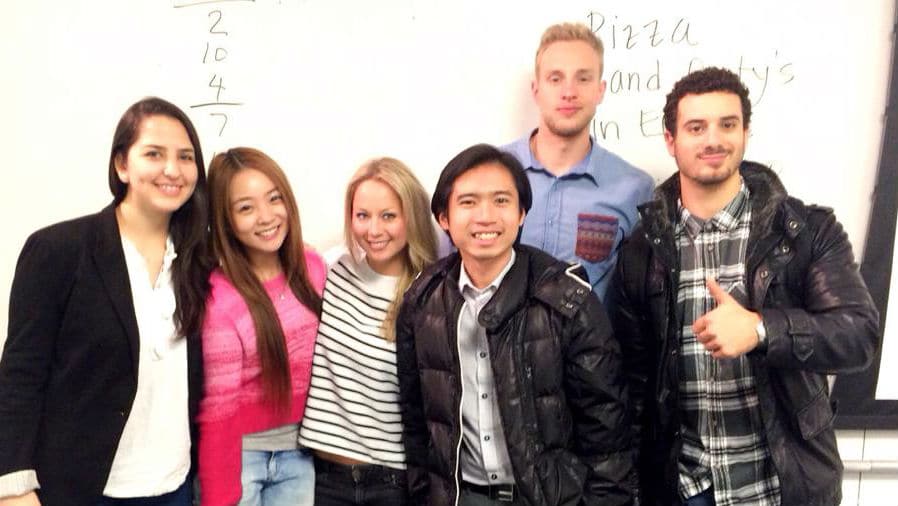When I was a student at Hult I was often asked: “Why are you at Hult if you’re an American?” The only people I had known up until that point were Americans. It wasn’t until I was 28 that my travels went beyond North America. After that, there was no turning back. I realized the more I traveled, the less I knew about people, cultures, and the world.
I didn’t choose Hult, Hult chose me. While living in Washington, D.C., I applied to a few traditional Masters in Marketing programs on the East Coast, but they weren’t a fit. They viewed me as a piece of paper; they didn’t value that I was evolving personally and professionally as my surroundings changed.
As we all know, Hult has great enrollment advisors and globally-oriented marketing, including a personalized admission process, local happy hours, and amazing follow-through. Throughout my admissions process my advisor recognized me for my talents, and eventually became a friend. Little did I know at the time that Hult would change me into an internationally-minded citizen of the world.
So, back to my question: “Why are you at Hult if you’re an American?” Only 16% of the student body at Hult hails from North America. From my experience living in the United States, we live in a bubble. I wouldn’t have known this if I hadn’t gone to Hult. I also wouldn’t have learned that my personality can be a turnoff to other cultures. I am so American. I’m outgoing and talk loudly. I’m opinionated and blunt. I’m proud of every accomplishment I’ve ever made and want to scream it from the rooftops. In my team peer evaluations I learned that these are not always positive personality traits. How would I have known any better if I hadn’t had the opportunity to meet and work with students from all over the world?
At Hult I was part of a team that included a German, Indian, Chinese, Chilean, and together we created an advertising campaign for a Napa winery. Oh boy, the dynamics were off the wall. We all communicated in the ways our respective cultures shaped us. We learned that no one is right or wrong, and that only when you accept differences can effective collaboration begin. It’s the differences in perspectives that make a team thrive.
We spent a lot of time during Toolbox learning about different cultures and ourselves. Toolbox is a four-week preparatory course at the beginning of each masters program that covers the aforementioned, but also business mathematics and finance. Here are a few things I learned: South Americans are family-oriented, so asking about someone’s family in a business setting is acceptable. Chinese may be less inclined to voice their opinion unless they feel they must make a very good point. Typically, people in the Northern Hemisphere value time and punctuality more than those who reside in the Southern Hemisphere. The more I learned about my classmates’ cultures, the more I valued them—and their backgrounds.
Keeping an open mind is what allowed me to thrive at Hult. I traveled to Brazil and Dubai during my program, but even if I hadn’t, I would have still received the same amount of cultural education just by going to class everyday, engaging with multicultural teams, and hanging out with my diverse group of friends. Hult allowed me to step out of my cultural bubble and view the world with a wider lens. It’s an experience I will never forget.
Kimberly Pesola graduated from Hult International Business School in 2014, with a Masters in Marketing. She has been a passionate marketer since she was in high school. When she’s not marketing, she enjoys cycling, traveling, playing piano and chess.
Hult offers a range of highly skills-focused and employability-driven business school programs including a range of MBA options and a comprehensive one year Masters in International Business. To find out more, take a look at our blog How Business School Can Nurture Future Leaders. Download a brochure or get in touch today to find out how Hult can help you to learn about the business world, the future, and yourself.


